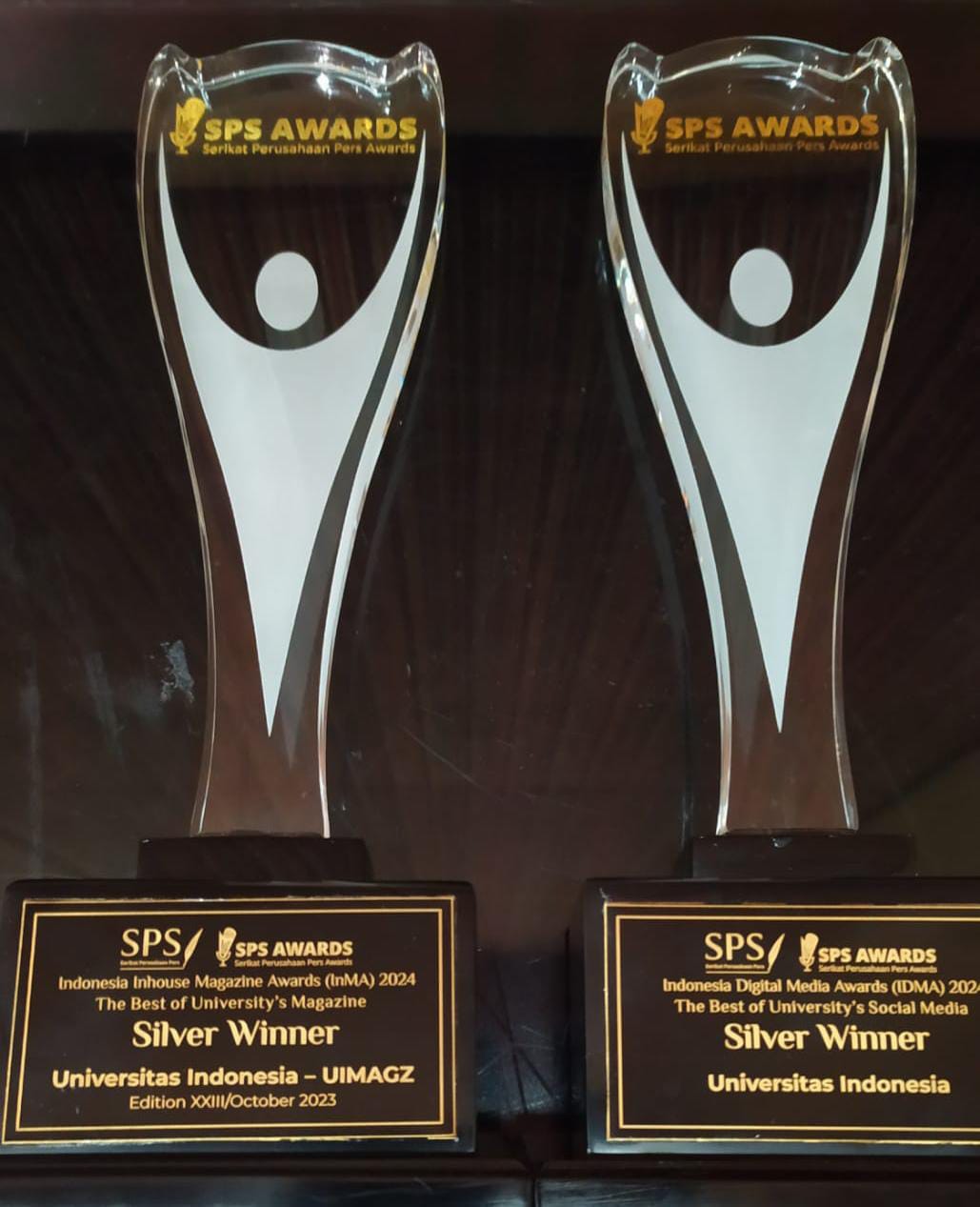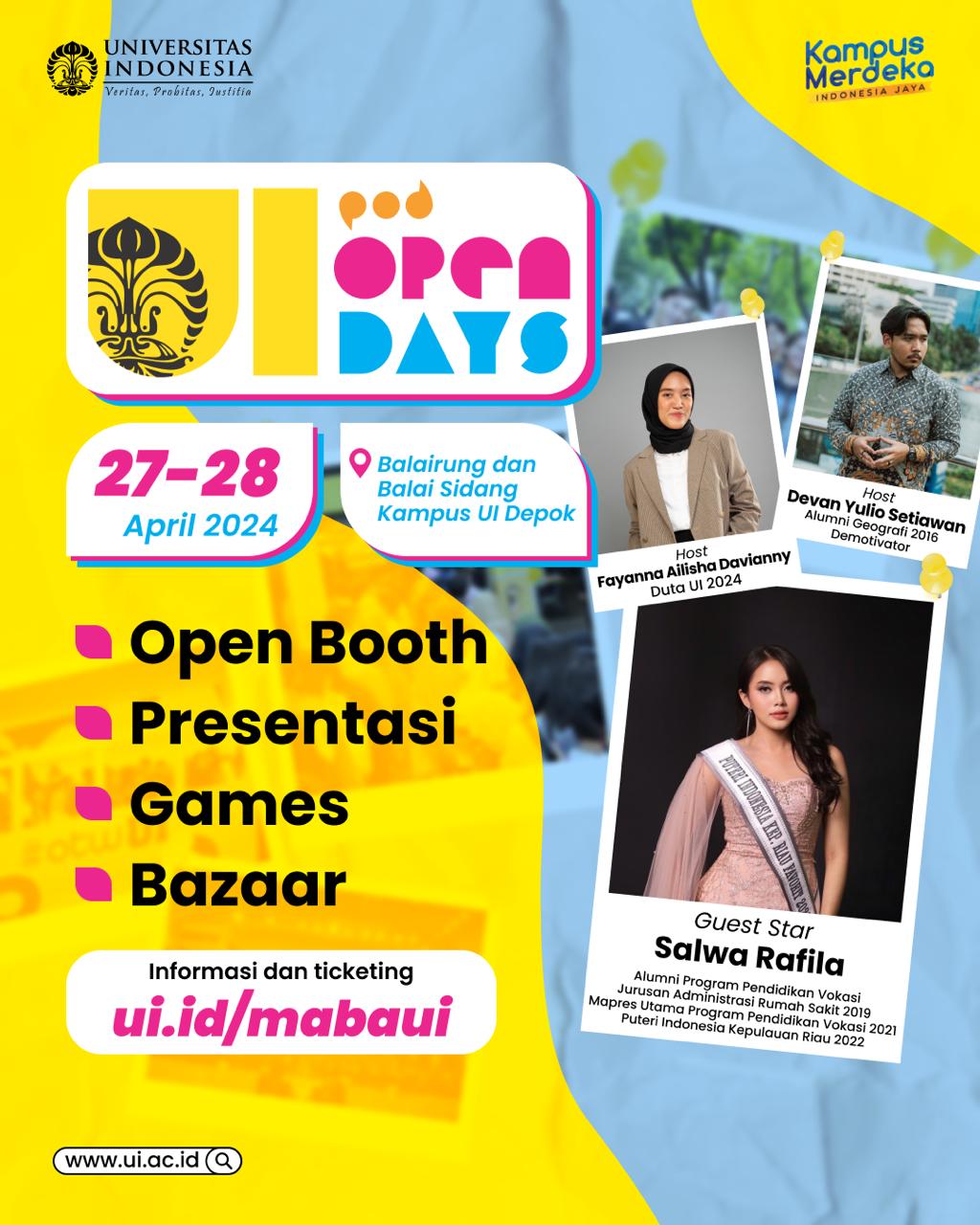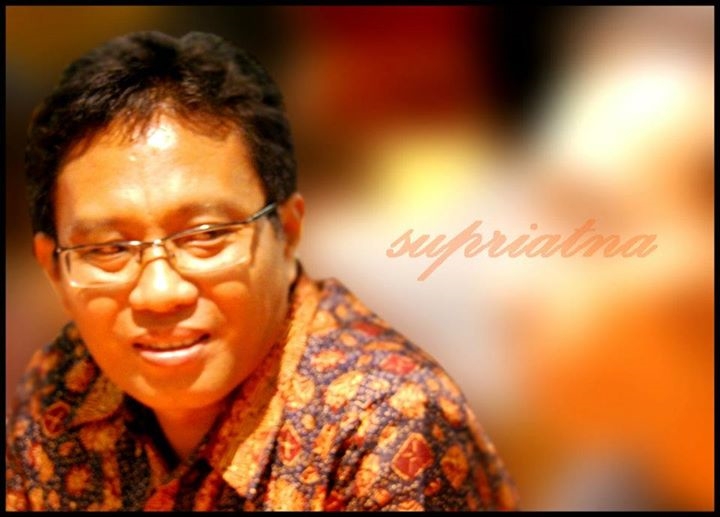Vice Regent of West Manggarai dr. Yulianus Weng, M.Kes. said that, “The problem of clean water is something that always happens in West Manggarai. Although currently in Labuan Bajo city area clean water is starting to be abundant, in villages such as Warloka, Golomori, Rinca Island, water is still difficult,” he said. The environmental and natural conditions in West Manggarai Regency, which are arid, dry, and often undergo a water crisis, inspire the community service team (pengmas) from School of Environmental Science (SIL) of Universitas Indonesia (UI) to contribute to the local community, according to the knowledge background of the members.
The SIL UI community service team carried out their work program through the installation of a permanent rainwater harvesting systems in West Manggarai Regency, East Nusa Tenggara. The ten-member team, with backgrounds in engineering, regional development, environmental health, geology, business, and social affairs, carried out activity planning starting from the literature study stage, design planning and rainwater potential schemes, to the field surveys.
The Head of Kampung Lenteng and Soknar in Golomori Village Abdul Rajak and the Imam of Zihadul Qaromah Mosque in Kampung Lobo Usu in Golobilas Village Jafar expressed their positive responses and gratitude for the benefits they felt from UI community service. They agreed that the rainwater harvesting installation was very helpful for the community to meet their clean water needs.
The permanent installation of rainwater harvesting systems in both locations is very right on the target and realizes the 6th goal of the SDGs (Sustainable Development Goals), which is ensuring access to clean water and proper sanitation for the community. Previously, in 2021, several SIL UI lecturers had the opportunity to visit Labuan Bajo for a planned collaboration with Implementing Agency for the Labuan Bajo Flores Authority (BPOLBF).
At that time, the Head of Master of Environmental Science Study Program Dr. Hayati Sari Hasibuan found ideas related to the program to develop research in the field of environmental science by integrating it through community development efforts and regional potential. Thanks to suggestions and directions from several parties such as BPOLBF, Development Planning Agency, Research and Regional Development of West Manggarai (BAPPEDA), and several ranks of West Manggarai Regency government office at a discussion forum with four UI community service teams, there is an idea to install rainwater harvesting systems located at the Zihadul Qaromah Mosque, Lobo Usu, Golobilas Village, and at the Mosque of Kampung Lenteng Golomori Village, Komodo District, West Manggarai Regency, East Nusa Tenggara.
Shana Fatina, President Director of BPOLBF, said that Lenteng and Soknar in Golomori Village are suitable locations for the activity since they are still under BPOLBF’s authority and close to the Special Economic Zone. “Warloka Village, Golobilas, and Papa Garang Island, Rinca Island also undergo water scarcity because they buy water from Labuan Bajo city,” Shana said.
BAPPEDA Secretary of West Manggarai Jhon Valbis said that in Lobo Usu, Golobilas Village, the water quantity is abundant, but the quality is poor. Some of the suggestions and directions from the local office head during the meeting with SIL UI in the hall of the West Manggarai Regent’s Office were about the selection of the location which is expected to bring benefits to the community in the location of Labuan Bajo tourist buffer area.
After the installation of rainwater harvesting system at the location, it will help the community meet their clean water needs, which will have a positive effect on promoting the tourism potential of the area. SIL UI Community Service Team Leader Dr. Hayati Sari Hasibuan said that this activity is expected to be sustainable and continued by the West Manggarai Regency government and BPOLBF in partnership with UI as a technical team. She added that the rainwater harvesting system comes from rainwater (nature) which will always be available in a cycle.
Similar programs have been conducted several times by SIL UI in Jakarta and Cikarang in collaboration with the National Research and Innovation Agency (BRIN) and Unilever Indonesia Foundation. The program has been replicated by the provincial government of DKI Jakarta as one of its programs and has received a positive response from the government and the community.
SIL UI lecturer Dr. Ahyahudin Sodri representing other community service members said, “Through this rainwater harvesting system, the mindset regarding whether this tool can only function during the rainy season needs to be changed. Start by thinking how to maximize and optimize the existing rainwater during the rainy season to be utilized so that there is no excess water that is not used during the rainy season,” he said.



